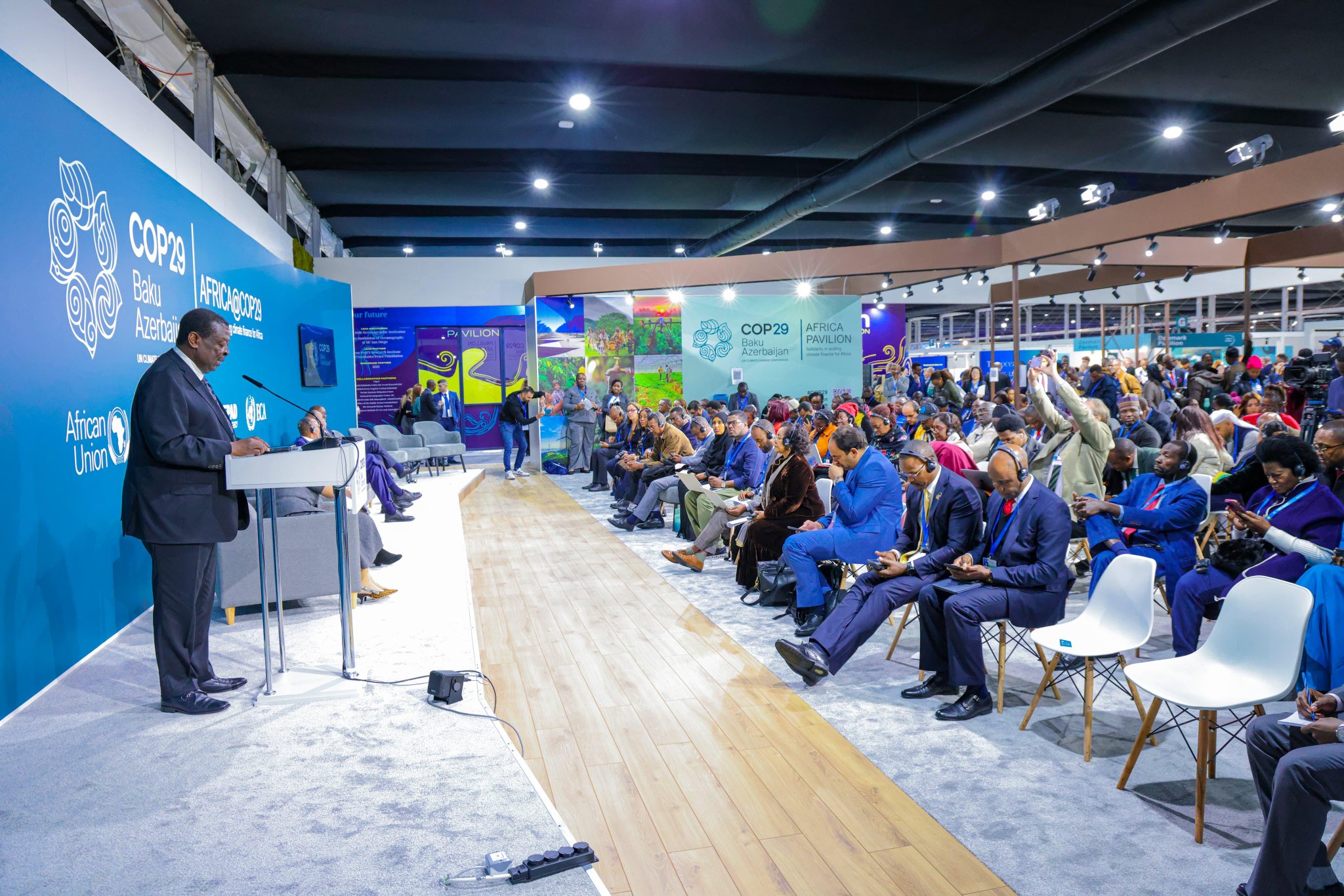
Kenya calls for Ksh 167 trillion for Climate Fund at COP29
Prime Cabinet Secretary Musalia Mudavadi has called on world leaders to establish an annual Ksh 167 trillion ($1.3 trillion) for Africa climate fund aimed at supporting developing nations in combating the effects of climate change.
Speaking when he represented President William Ruto at the World Leaders Climate Action Summit, COP29 conference Baku Azerbaijan, Mudavadi emphasized that climate change is a daily reality in Kenya.
“In Kenya, climate change is a daily reality,” he said, reflecting on the devastating consequences of recent climate events.
He highlighted that floods just five months ago killed 267 people and displaced over 280,000. In addition, droughts last year led to the death of more than 2.4 million livestock, leaving many livelihoods destroyed.
He underscored that the climate crisis is not confined to Kenya, with Africa suffering losses ranging from 9 to 12 percent of its GDP due to climate-induced damages. These disruptions are severely affecting infrastructure, agriculture, water resources, tourism, and other vital sectors across the continent.
Mudavadi further emphasized the importance of global cooperation to tackle the crisis. “To address these challenges, we must scale up climate finance,” he said.
He called for a New Collective Quantified Goal (NCQG) of no less than $1.3 trillion annually from 2025 to support adaptation efforts, loss and damage, and the implementation of Nationally Determined Contributions (NDCs). He also proposed an additional $5.8 trillion by 2030 to ensure a just transition to low-carbon economies.
The PCS also addressed the financial barriers that developing nations face, citing high interest rates, rising climate costs, and constrained fiscal space.
“We need to unlock the capital needed for climate action,” he said, calling for the reform of Multilateral Development Banks (MDBs) to unlock climate financing, suggesting debt restructuring and redesigning credit ratings to reduce borrowing costs.
Mudavadi took to stress the importance of up scaling renewable energy and phasing out fossil fuels. “We must agree on measures to triple renewable energy capacity by 2030,” he urged.
He advocated for a global roadmap to ensure a fair transition to a low-carbon economy, with concrete steps toward a fossil fuel phase-out.
Mudavadi highlighted the need for improved carbon markets under Article 6 of the Paris Agreement.
“Carbon markets have untapped potential, but we face challenges like price volatility and lack of uniform standards.”
“We must operationalize carbon markets through reviewable bilateral agreements to ensure transparency and accountability in the carbon trading regime,” he added.
Kenya also strongly advocated for the operationalization of the Loss and Damage Facility.
Mudavadi urged world leaders to fast-track mechanisms to support vulnerable countries affected by climate change. “The Loss and Damage Facility must be fully operationalized to address the needs of developing nations,” he said.
In closing, Mudavadi called for stronger political will and international cooperation to confront economic interests that prioritize profits over people and the planet.
“We must transform the climate crisis into an opportunity for a green and resilient future for all,” he concluded.
Kenya’s proposals at COP29 underscore the country’s commitment to securing the necessary financing and international support for climate action. The success of this conference is crucial to ensuring that developing nations have the resources needed to tackle the climate crisis effectively.
